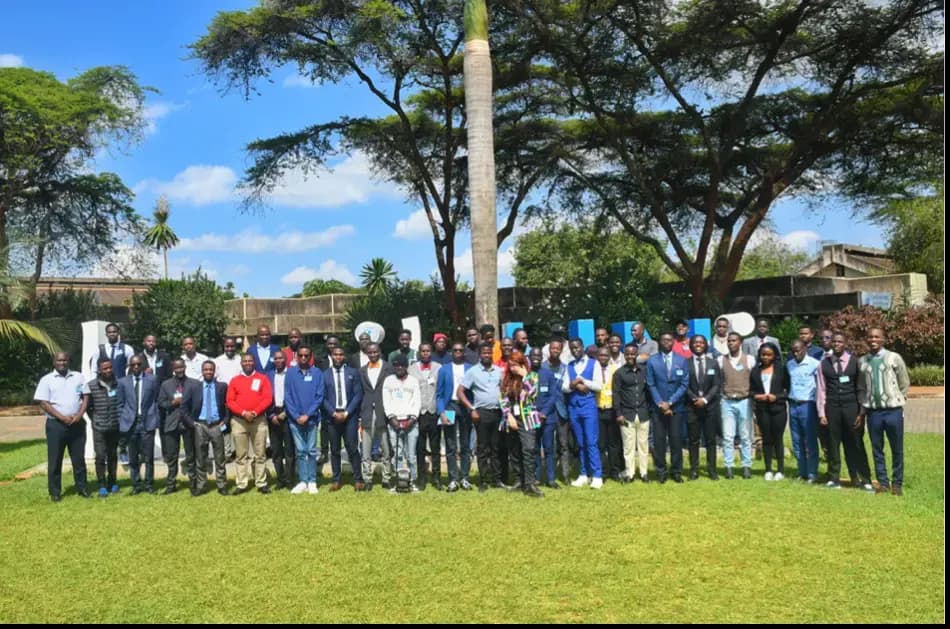We're loading the full news article for you. This includes the article content, images, author information, and related articles.
The government's new five-year plan aims to enlist men and boys in the fight for gender equality as new data reveals a staggering rise in violence against women, sparking urgent questions about its potential impact.

NAIROBI, KENYA – In response to a devastating surge in gender-based violence (GBV) and femicide, the Government of Kenya, through the Ministry of Public Service, Gender and Affirmative Action, has officially launched the National Male Engagement and Inclusion Strategy for 2025–2030. The policy, formally adopted in late 2025, marks a significant strategic shift by placing men and boys at the centre of efforts to dismantle patriarchal systems and foster gender equality. The launch on Wednesday, November 19, 2025, EAT, comes as the nation grapples with alarming statistics that paint a grim picture of the violence faced by women and girls.
The strategy arrives at a critical juncture. Data presented to the Kenyan Senate in May 2025 revealed that 578 cases of femicide were reported in 2024, an increase from 535 in 2023. Other sources, such as Africa Uncensored and Odipo Dev, reported at least 170 women killed in 2024, the highest annual toll on record, representing a 79% increase from 2023. The crisis has continued unabated, with law enforcement agencies recording 97 femicide cases between August and October 2024 alone. The National Council on the Administration of Justice's 2024/25 report further highlighted that Kenyan courts handled 31,460 SGBV cases in the financial year, with Nairobi, Meru, and Kiambu counties recording the highest numbers. According to the Gender Violence Recovery Centre at Nairobi Women's Hospital, their facilities record an average of 4,000 GBV cases monthly, a figure CEO Sam Thenya has called a "national crisis."
The new national strategy defines male engagement as a constructive approach to involve men and boys as "beneficiaries, partners and allies" in promoting gender equality and as agents of change. Proponents argue that since men are the primary perpetrators of GBV, their inclusion is essential for any sustainable solution. The framework moves beyond blame, acknowledging that men also face vulnerabilities due to rigid patriarchal norms, including social pressures and violence. Speaking on the importance of this approach, UN Women Kenya Planning and Coordination Expert, Sebastian Gatimu, stated in December 2024 that while women must lead the gender equality movement, "we need to engage boys and young men more intentionally to achieve gender equality as well as preventing femicide."
The strategy is supported by a coalition of state and non-state actors, including UN Women and UNESCO, which are working on mechanisms to integrate young men into the framework. Civil society organizations like the MenEngage Kenya Network (MenKen), a national network formed in 2006, are key partners, having long advocated for male involvement in preventing GBV and promoting sexual reproductive health.
The policy builds on global initiatives like the HeForShe movement, launched by UN Women in 2014, which has sought to mobilize men as allies. In Kenya, this has translated into grassroots efforts, including engaging community elders in counties like Samburu and West Pokot to publicly denounce harmful practices like Female Genital Mutilation (FGM) and child marriage. However, the approach is not without its critics and challenges. Some gender experts caution that male-centric programs, if not carefully designed, risk reinforcing harmful gender stereotypes or sidelining women's voices. There is a recognized need for such programs to remain accountable to women's rights organizations and movements to avoid undermining their long-standing efforts. Furthermore, a study by Advocates for Social Change Kenya (ADSOCK) highlighted a growing narrative of the "boy child under siege," which can fuel patriarchal backlash against women's empowerment initiatives. This sentiment, which posits that men are losing their rightful place in society due to the feminization of society, presents a significant hurdle to the new strategy's implementation.
The success or failure of this strategy will have profound implications for Kenya, which has a target to end GBV by 2026. The economic cost of inaction is stark; a task force reported in June 2025 that GBV costs the Kenyan economy an estimated Sh41 billion annually. The strategy's implementation will require overcoming significant obstacles, including inadequate funding—a pledged Sh100 million fund for fighting femicide was yet to be dispersed as of May 2025—and a lack of specialized training for police and judicial officers handling GBV cases. As a co-leader of the Generation Equality Forum's GBV Action Coalition, Kenya's approach will be closely watched across the East Africa region and beyond. Successfully transforming deeply entrenched social norms by engaging men as partners could provide a vital blueprint for other nations facing similar crises. However, failure to address the underlying drivers of violence and potential backlash could see the crisis of femicide and GBV deepen, with devastating consequences for another generation of women and girls.
Keep the conversation in one place—threads here stay linked to the story and in the forums.
Sign in to start a discussion
Start a conversation about this story and keep it linked here.
Other hot threads
E-sports and Gaming Community in Kenya
Active 9 months ago
The Role of Technology in Modern Agriculture (AgriTech)
Active 9 months ago
Popular Recreational Activities Across Counties
Active 9 months ago
Investing in Youth Sports Development Programs
Active 9 months ago